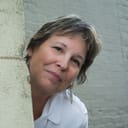Stay in the Loop
BSR publishes on a weekly schedule, with an email newsletter every Wednesday and Thursday morning. There’s no paywall, and subscribing is always free.
Lili Añel brings her acclaimed music career from New York to Philly
Lili Añel remembers when her Havana-born father would tell her stories of peeking in the windows of the original Buena Vista Social Club to watch the dancers and feel the rhythms. Añel is a second-generation American of Afro-Cuban parents and Philly singer-songwriter who has a new project forthcoming from Philly’s Winding Way Records.
“My mother played a lot of jazz along with Cuban and native African music at home. One set of albums she always played was the The Complete Cuban Jam Sessions,” she remembers. “The song forms were Cuban, but the performances were heavily jazz-oriented. I loved the combination of styles!”
Taking the feeling home
Those fatherly tales of music past and her mother’s love of the sounds coming from the descargas inspired this inventive artist to explore the heart of whatever she was feeling with her extraordinary voice and her guitar.
Born in New York City, raised in Harlem and the South Bronx, Añel absorbed the atmosphere.
“I sang in church as a kid, the usual story. It always made me feel I had a straight line to God.” She began writing songs, and then taugh herself how to play guitar. “I loved music and wanted to do what the songwriters I’d go and see perform did for me,” she says: make you carry the songs’ feeling with you when you went home, or maybe resolve your own feelings.
“I’d go hear Janis Ian, Joni Mitchell, or Joan Armatrading and say, ‘God, I want to do that.’”
She was a voice major at the Leonard Davis Center for the Performing Arts at City College before she embarked on a career deliberately bumping into people who would get her to another level of expression and expertise.
Song sensibilities
When she got a bit older, Añel frequented the jazz clubs in the city, especially Seventh Avenue South in Greenwich Village, owned by Michael and Randy Brecker, famous Philadelphia jazzmen who had migrated to that mecca early in their careers.
Michael Brecker was a huge influence, she says of hearing him there. “I have often said if the sound that came out of me was a tenor saxophone, I’d be beyond happy. Brecker’s playing had what I call ‘song sensibilities’ — he knew what to play and what not to play.”
Her first album, Laughed Last, debuted on Palmetto Records out of New York, but Añel retraced the Breckers’ steps back to Philly when she fell in love 14 years ago. Since then, she has made this city her own and is currently on the Philly indie label Winding Way, which will release a “best of” album at the end of December, including highlights from her seven acclaimed projects. 2013’s “I Can See Bliss From Here” topped the charts on WRTI Temple University Radio three times that year, and made 2014’s Top 100 Jazz Countdown in 2014.
“Better Days”
Añel has a rich voice that adjusts easily to whatever she happens to be saying/singing at any particular moment, glissing seamlessly toward the sky or skimming along the rich earth of life’s deeper meanings. She can exude deep softness or erupt with a full-bodied cry. Her songwriting uses everything she heard and felt as a girl, swirling her past into her present concerns, skillfully using the stuff she likes most about other women singer-songwriters. Her lyrics make her story yours, like the best lyrics always do.
In addition to the upcoming Winding Way “Best of” CD, Añel is working on a new project with her longtime bandmates: pianist Dale Melton, bassist Jeff Blount, and drummer Jonathan Whitney, plus newcomers tenor saxophonist Korey Riker and trumpeter Christopher Stevens. She can’t say what the project is about yet, but “the songs reflect life where it’s at right now for me.” The title track, “Better Days,” was cowritten with her twin sister Barbara, an accomplished, classically trained pianist. “Our grandfather often said to us when times were tough, ‘Better days will come.’ He was right.”
Sign up for our newsletter
All of the week's new articles, all in one place. Sign up for the free weekly BSR newsletters, and don't miss a conversation.

 Suzanne Cloud
Suzanne Cloud